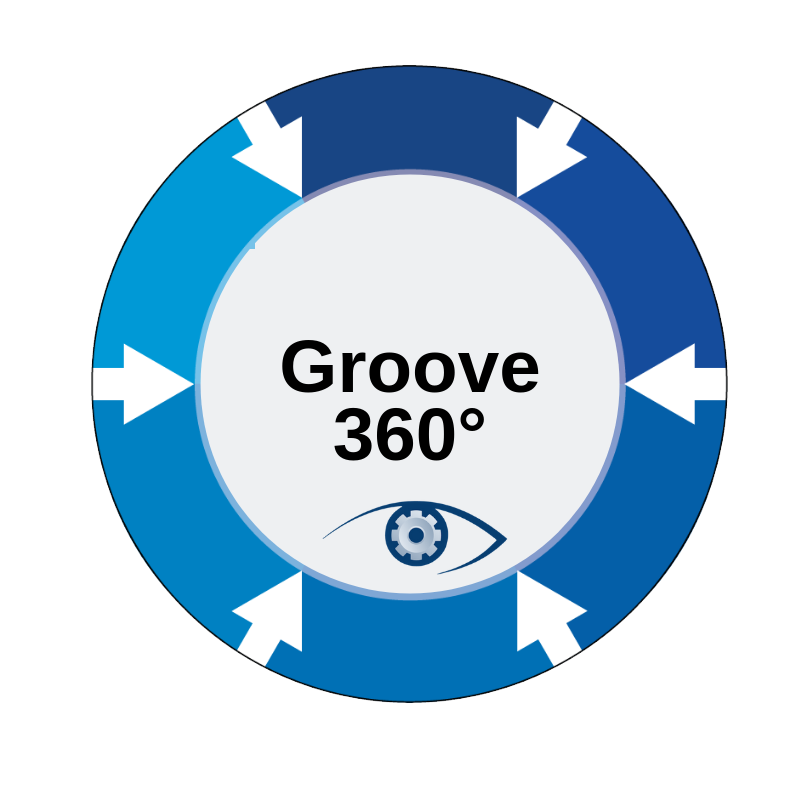Do You Delegate Tasks or Responsibility?
There is a tension that exists between leading and managing. Transitioning from being an individual contributor to having direct reports is a challenge for most people because it requires a shift in behavior and approach. Management is about getting things done through others and that first role with direct reports is typically a hybrid of managing and doing. As the team of direct reports grows and a person becomes a manager of managers, there is another shift that must occur from manager to leader. In this case, leadership is any attempt to influence the behavior of others. This requires a much broader and less prescriptive approach. This is where I find more people struggle.
During many of my executive coaching engagements I utilize a 360 tool to gather feedback on the coachee from their various constituents. Most of the time I utilize the Groove360, a robust online tool that our company built. In certain circumstances for CEOs I supplement the online tool with interview based 360s. The 360 helps build greater awareness of the coachees strengths, weaknesses and how their impact versus their intent. In a recent interview for a 360 we surfaced an interesting observation regarding a leaders ability to delegate.
There are two questions in the Groove360 that highlight the difference between managing and leading in a subtle way. The first question asks to rate the person’s ability to delegate tasks on a one to five Likert scale. The second question asks to rate the person’s ability to delegate responsibility. These questions highlight the challenge that many of our coaching clients face as the size and scale of their organizations increase. Delegating tasks makes it extremely difficult to focus on big picture high value activities.
As a direct report, it can be frustrating to be told what to do versus what needs to be done.
Helping a client transition from manager to leader is one of the reasons that Groove Management is hired for coaching engagements. We help our clients to be more effective leaders. This requires that they stop delegating tasks and begin to delegate responsibility and ownership. In another blogpost, Why There is No Such Thing as Micro-Leadership we further distinguish between management and leadership.
If you are responsible for a team of people in your organization, ask yourself the question: Am I better at delegating tasks or responsibility? If you find that you delegate more tasks than responsibility, then you can see how this approach keeps you in the weeds and uses up much of your time. Additionally, it does not empower your direct reports to take ownership and to grow their responsibility. Having conducted hundreds of 360s with various clients, the data makes it clear that most people are better at delegating tasks than they are at delegating responsibility. The best leaders we work with have learned to delegate responsibility. They are clear and articulate in the goals and outcomes they desire, but they provide their team members with the autonomy and freedom to do it their own way. This build greater leadership capability throughout the organization and frees up the leader to tackle bigger picture challenges and opportunities.
In the Groove360 we assess coaches on their current observable performance and the desired future performance once year from now. Delegating responsibility tends to have a larger gap between current and future performance than does delegating tasks. In the example chart above, you can see that this individual is seen to be better at delegating tasks than responsibility both in their current performance and the desired future performance. Most notably their direct reports and their line manager highlighted the biggest gap when it came to delegating responsibilities. The direct reports crave more autonomy and the line manager wants this individual to focus on higher level priorities. This is a clear area for development for this individual. The 360 helps highlight this area for improvement. The language may seem subtly different, but in practice there is a significant difference. In order to delegate responsibility the leader must have trust and confidence in their direct reports. Often leaders delegate tasks out of a lack of trust or confidence in their team members. This brings into question whether or not they have the right talent on their team. In my experience, this is more a reflection of the leader than the team member. In most instances, if given the opportunity to take responsibility team members will rise to the challenge. This requires that the leader learn to let go.
Coaching is about helping people along their journey of self discovery. Helping leaders to recognize that they are trying to control and manage versus empower and lead is one of the most powerful shifts that we can make with our coaching clients. It enables them and their organizations to unlock potential and drive for greater efficiency. As you approach your next one on one with a direct report, ask yourself, what ownership can I delegate to this person?


